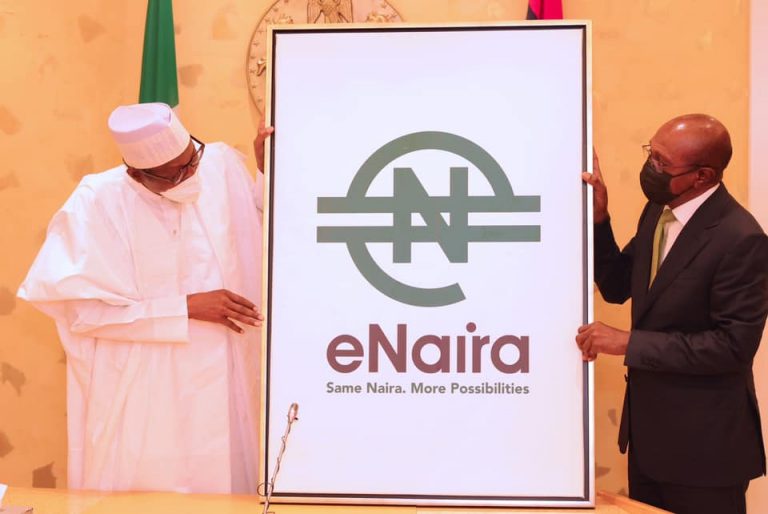
I called on President Muhammadu Buhari a little over a year ago to make Nigeria the first country on the planet to abolish cash.
Perhaps he was paying attention.
The President announced last week that Nigeria will be the first African country to introduce a digital currency.
The eNaira is intended to reduce transaction costs and increase participation in the formal financial system, with the President claiming that its technology can “increase Nigeria’s gross domestic product by $29 billion over the next 10 years” in a televised address.
We want to see a Nigeria that is bold, creative, modern, capable of continental leadership, and driven by digital technology.
We are, in many ways, the ideal society to test this technology. The vast majority of Nigerians will own a smartphone within the next few years, and our country is already home to Africa’s largest and most important e-payment companies, such as Flutterwave, Opay, and Andela.
While many Nigerians are accustomed to receiving money electronically from relatives abroad, our entire economy still expects them to queue for cash at kiosks when spending that money at home – even though every transaction can be completed electronically at the touch of a button!
Cash’s days are numbered, despite the fact that it is old-fashioned and will be with us for a long time.
It’s not only out-of-date; in this era of Covid-19 and civil unrest, it’s also dangerous.
However, the true advantages of a digital economic system may be those that benefit our democratic system.
Physical cash is filthy money in more ways than one, and any system that relies on it makes corruption much easier.
Reducing the use of cash in public life could be a critical step in regaining Nigerians’ faith in the democratic process.
With anonymous and untraceable cash payments, transparency and accountability are practically impossible. And this has far-reaching implications for ensuring that public funds are spent as intended.
Take India as an example of how this can work. Bribery decreased by half after the Indian government began making pension payments digitally rather than in cash. I’m sure I’m not the only Nigerian who wishes for something similar to happen in our country.
Nigeria is making significant progress in this area as well. The government made impressive efforts to make palliative payments electronically during Covid-19, as well as taking significant steps to improve the transparency and governance of Covid-related spending, such as publishing procurement plans and notices for all emergency response activities, including the names of companies awarded contracts and the owners of those companies.
Now is the time for our elected officials to pursue transparency as well.
We are determined to use technology to improve accountability and transparency in Nigerian politics at the digital democracy campaign I lead.
We’ve created a free app called Rate Your Leader that allows voters to communicate directly with their elected officials in their communities. The Rate Your Leader app enables politicians to interact directly with the voters who elected them, fostering mutual trust and respect.
Rate Your Leader also assists local leaders in explaining and justifying every decision and dollar spent, ensuring that they are truly accountable to the people they serve.
And if their constituents are dissatisfied with the responses, they can give their politicians a low rating for all to see.
Read also: Anambra Poll: SNM Demands Sack of Prof Okey Ibeanu, REC over Alleged $4 million Bribery to Rig for APGA
We will be living our lives digitally in 2021. We go there to shop, socialize, learn, work, and even date. So, why does our economic system still expect us to conduct business in the same manner as our forefathers?
Our campaign’s message is simple: our politics and political institutions must take advantage of the digital age’s opportunities to become more accessible, transparent, and responsive – and more relevant to the people they serve.
Too much of our public payment, welfare, and transportation infrastructure is still based entirely on cash. This needs to be changed. The creation of the eNaira, on the other hand, is a significant step toward a cashless Nigeria – and an international achievement that we should all be proud of.
This would necessitate a significant commitment and investment on the part of the government. The government, on the other hand, could begin as early as tomorrow by aiming to make all government payments, such as Conditional Cash Transfer, digital by default.
Our country is transforming into a digital one. Our currency can no longer be analog.